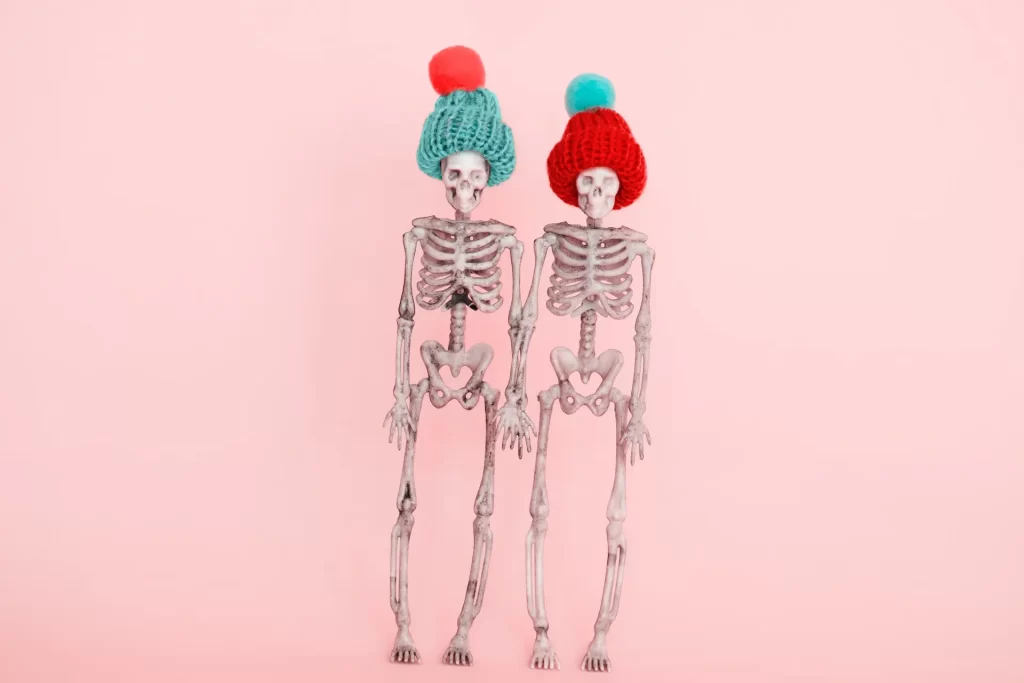
Hormonal Influence on Bone Health
Sex hormones and stress hormones all have effects on bone health. No surprise really…is there anything that hormones don’t influence?
The Sex Hormones
The key sex hormones estrogen, progesterone, and testosterone all work together to support bone turnover.
When we exercise we are stressing the bone and causing teeny, tiny little fractures along the weakest lengths of the bone. Estrogen stimulates osteoclasts – cells that act like Pacman eating the dots. They hollow out that microfracture digesting all the weakened cells in their path.
Progesterone signals the osteoblasts who move through that new minuscule tunnel and lay down fresh, strong, healthy bone tissue. What was recently the bone’s weakest link has now become its strongest part!
Testosterone helps to increase the level of minerals in the bone making them harder and stronger.
Post-menopausal status is associated with bone loss because of the change in hormone levels. All three hormone levels may drop as menses ends, or just 1 or 2 might change leading to an overall imbalance.
If you have a family history of osteoporosis or early signs yourself, a hormone test is often illuminating as to your next steps for healthy aging that includes strong bones.
Stress and Metabolic Hormones
High stress jobs and lifestyles may decrease bone mass because the minerals are needed elsewhere to survive that (perceived or real) immediate danger. Cortisol, which is elevated during stress, will pull minerals out of the bone in order to maintain nerve and muscle control so that we can survive the threat.
High blood sugar and diabetes lead to increased risk of bone loss and fracture as well. Insulin helps to build strong bones, thereby making insulin-resistance a detriment to our bone health (not to mention the negative impact that insulin resistance has on mental health, weight, cardiovascular health, and beyond!)
Identifying hormone imbalances is an essential step in maintaining strong bones throughout life.
Take action:
Identify the primary hormone imbalance and take steps to address it!
For both men and women – a “spare tire” of abdominal weight, fatigue, hair changes, skin dullness, sleep issues, muscle weakness, or circles under the eyes may be a sign that cortisol, thyroid, or other hormone levels need to be optimized. If there are visible symptoms on the outer layer of your body, chances are good there are imbalances deeper within as well.
Stress management in it’s myriad of forms need to be explored for long-term bone health. Once again, exercise shines as it can both help us to manage our stress by releasing dopamine and other mood-forward neurotransmitters, as well as physically support stronger, healthier bones when we choose weight-bearing exercises.
Hormone testing is available as are a wide variety of treatments to address the underlying conditions. Blood, urine, and saliva are all possible fluids to assess to give insight into hormone levels. Come on in and let’s discuss the options that are right for you!
